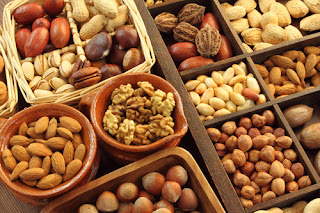The myth of protein intake. How much and when to take protein for muscle gains?
If you also exercise, you have probably already considered the question of when it is best to take in protein and in what amounts. Whether 3 meals a day is enough or should be there, someone even thinks about seven smaller ones. And this is the topic that the article we have prepared for you deals with. And you will surely be surprised that you were wrong so far.
There are a few things in bodybuilding that are understood as fact; they are simply out of the discussion. We all KNOW that in order to optimize muscle growth, it is very important to consume adequate amounts of high-quality protein. WE ALL KNOW THAT THE BEST WAY TO HAVE THE BEST INCOME OF HIGH QUALITY PROTEINS is to divide them into small and frequent portions of meals to maintain a permanently elevated amino acid level in order to maintain a constant stage of anabolism. We also know that eight meals / servings a day is the best way to go. Well, we are all WRONG!
How often protein should be ingested is as important as how much we should consume in each serving, as the sum of the anabolic responses to a meal is not only how high the responses are, but how long the response takes. In other words, when a high-protein meal causes an increase in protein synthesis, how long does this reaction last and when can it be stimulated again? This will determine the optimal frequency of these servings for maximum anabolism.
Anabolic reactions to a complete meal containing protein, carbohydrates and fats have been shown to peak at the 90th minute and return to baseline in 3 hours. So it's easy, isn't it? We should simply eat every 3 hours. Well, before you run away with this information, read the rest of what we want to say. What is VERY interesting about our findings is that while protein synthesis returned to baseline after 3 hours, plasma amino acid levels were still elevated above baseline and plasma leucine (the amino acid responsible for increasing protein synthesis) was elevated almost 3x above the initial value!
Accordingly, the activation of the so-called. mTOR (mTOR activation triggers protein synthesis) was still maximized for 3 hours, while protein synthesis returned to baseline. Thus, an increase in plasma leucine levels was able to induce mTOR signaling and protein synthesis, but a sustained increase in plasma leucine levels and mTOR signaling was not sufficient to maintain increased protein synthesis. This indicates the "resistance" of the protein synthesis response to prolong the increase in plasma amino acid levels. Bohe (2001) et al. Demonstrated a resistance response to a constant increase in amino acids during 6 hours of amino acid loading. 2 Filling produced a constant increase in plasma levels of essential amino acids; as protein synthesis lasted only 2 hours and could no longer be stimulated for 6 hours.
It is unlikely that consuming another meal 2-3 hours after the first meal would be sufficient to increase protein synthesis again because amino acid levels are already elevated. Therefore, to avoid resistance and to maximize anabolism, the best way might be to consume more protein to maximize protein synthesis, while allowing sufficient time (4-6 hours) for amino acid levels to fall between meals, in order to sensitize the system.
We have probably shocked you now by actually telling you that the diet you have been following for so long may not be optimal when it comes to gaining muscle mass! For a long time you worked so hard to make sure you had a constant intake of amino acids and now we have told you that all your efforts have been in vain!
One way to explain resistance is that there is a membrane-bound protein, either extracellular or intracellular, that is sensitive to changes in amino acid concentrations rather than full concentrations. In this case, producing a constant height of plasma amino acids would produce a resilient response, as a constant height of amino acids would not be sufficient to activate the protein. One way to overcome this would be to consume a proper dose of free amino acids between meals, to create a rapid superpsychological increase in plasma amino acid levels, which would also decline rapidly, to re-sensitize the system.
Another possible explanation for resistance could include insulin. In this study, the time course of plasma insulin appeared to lead to protein synthesis. God (2001) and others also showed a similar development during their study. With increasing insulin, it is not necessary to start protein synthesis, this maximizes anabolic responses to amino acids. Apparently, the increase in plasma insulin requires that you maintain protein synthesis after a meal. If this is true, it is likely that the mechanism is independent of the effect of insulin on the so-called mTOR system, as research has shown that the resistance response can occur even when mTOR signaling remains elevated. Because insulin is not required to initiate protein synthesis, it is known to stimulate peptide elongation (elongation of growing protein as synthesized) in skeletal muscle. If decreasing plasma insulin levels reduce peptide elongation, this could shorten protein synthesis and explain resistance.
Consistent with both of these theories, Paddon-Jones (2005) et al. anabolic response of each procedure. They found that during the day, the group that consumed the dietary supplement had a greater anabolic response than the group that did not receive any supplement. Perhaps the consumption of amino acids in the free form together with carbohydrates was sufficient to overcome resistance, or the supplement completely optimized the anabolic response to each portion of food.
Consuming higher doses of protein seems to be spread apart (4-6 hours), supplemented with free amino acids and carbohydrates between meals, is an effective way to maximize muscle protein synthesis and possibly overcome the resistance response.

Žiadne komentáre:
Zverejnenie komentára